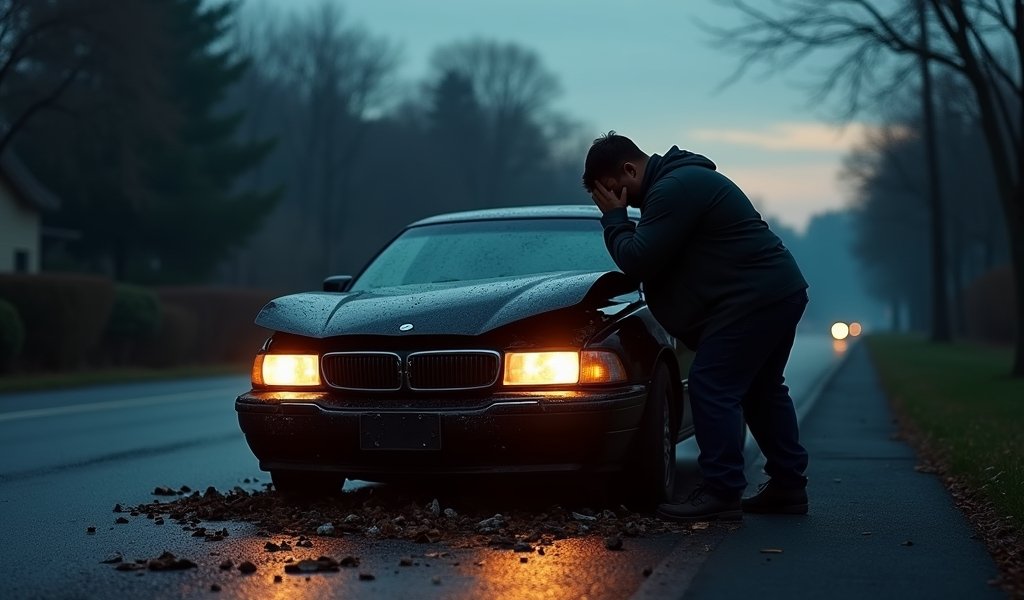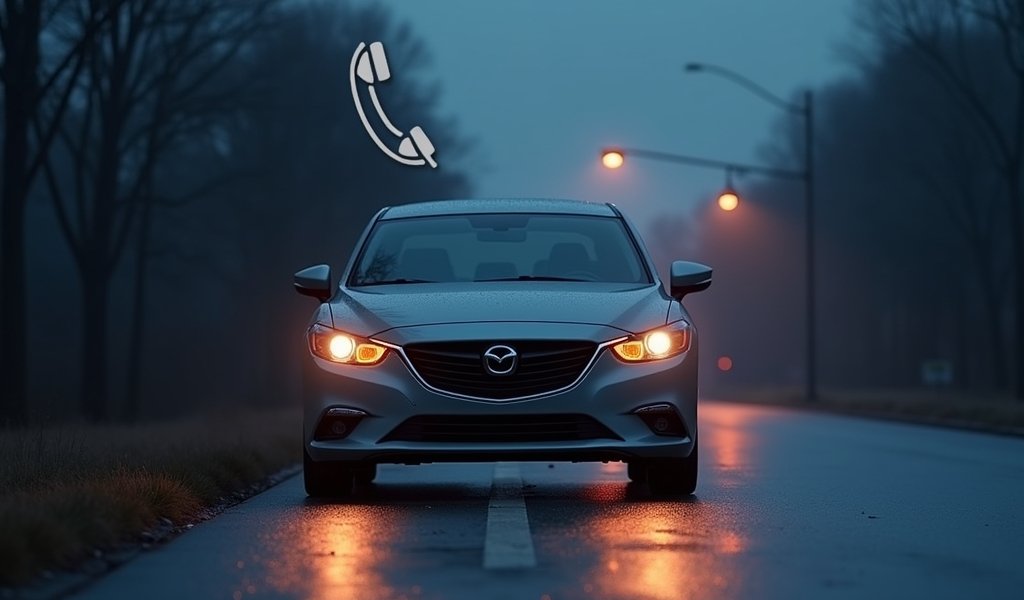Overview
This article provides a step-by-step guide for who to call after a car accident, prioritizing emergency services first, followed by insurance, legal help when necessary, towing services, and personal support networks. It emphasizes the importance of proper documentation, timely reporting, and seeking appropriate assistance to ensure physical recovery and favorable financial outcomes.
Table of Contents
- Understanding Who to Call After a Car Accident
- Call Emergency Services: Your First Priority
- Contact Your Insurance Company: Getting the Ball Rolling
- Legal Help: When to Call an Attorney
- Calling a Towing Service: Getting Your Vehicle to Safety
- Family and Support Network: Don’t Face It Alone
- Conclusion
- Frequently Asked Questions
Understanding Who to Call After a Car Accident
That sickening crunch of metal, the jolt that throws you forward, and suddenly your day has taken a dramatic turn. I’ve seen it countless times in my 20 years as an automotive professional – accidents happen when you least expect them. Knowing who to call after a car accident can make the difference between a manageable situation and a complete nightmare.
The moments following a collision are crucial, and your actions during this time can significantly impact insurance claims, legal outcomes, and even your health. Trust me, I’ve guided hundreds of rattled drivers through this process, and having a mental checklist ready can be your saving grace when adrenaline is pumping and clear thinking becomes difficult.
In this comprehensive guide, I’ll walk you through the five essential calls you should make after an accident. We’ll explore not just who to contact, but exactly when to reach out, what to say, and how to protect yourself in the process. Let’s break down this stressful experience into manageable steps that will help you navigate the aftermath with confidence.
Call Emergency Services: Your First Priority
When the dust settles after an impact, your first call should always be to emergency services – typically 911 in the United States. Even in what appears to be a minor fender bender, this step is non-negotiable. Why? Because injuries aren’t always immediately apparent, and proper medical assessment can detect issues before they become serious problems.
I remember helping a customer who initially refused an ambulance after what seemed like a tiny bump at a stoplight. Three days later, he was in the hospital with a serious neck injury that could have been treated immediately had he sought medical attention right away.
When calling 911, follow these specific steps:
- Clearly state your location with cross streets or mile markers if possible
- Report any visible injuries or trapped passengers first
- Describe the vehicles involved and any hazards (leaking fluids, traffic obstruction)
- Stay on the line until the dispatcher tells you to hang up
Beyond immediate medical concerns, having police documentation is invaluable for insurance claims. The responding officer will create an official accident report – a crucial document that serves as an unbiased account of what happened. This report often becomes the foundation for insurance claims and potential legal proceedings.
Here’s a pro tip from the garage: While waiting for emergency services, take photos of the accident scene if it’s safe to do so. Capture vehicle positions, damage, license plates, and the surrounding area. These images can provide essential context that might not be included in the police report.
Remember that in many states, reporting an accident is legally required when damages exceed a certain threshold (typically $500-2,000) or when injuries occur. Failing to report can lead to serious penalties including license suspension. Don’t take chances with this – avoiding proper reporting after a crash can create far bigger headaches down the road.

Contact Your Insurance Company: Getting the Ball Rolling
Once you’ve addressed immediate safety concerns, it’s time to call your insurance company. I always advise my customers to make this call from the accident scene if possible. The claims process begins the moment you report the incident, and early reporting can prevent delays in getting your vehicle repaired and back on the road.
Your insurance card should have a claims number right on it – this is your direct line to getting help. Modern insurance companies typically have 24/7 claims departments specifically to handle these urgent situations. When you call, you’ll be connected with a claims representative who will guide you through the process.
Be prepared to provide the following information:
- Your policy number and personal information
- Date, time, and location of the accident
- Brief description of what happened
- Information about other involved parties (names, contact info, insurance details)
- Police report number if one was filed
During this call, your insurance company will likely assign you a claims adjuster who becomes your point person throughout the process. The adjuster will schedule a vehicle inspection, provide guidance on repair options, and discuss your coverage details. They’ll also help coordinate a rental car if that’s included in your policy.
One common mistake I see is drivers being too casual about exchanging information after a wreck. Make sure you get comprehensive details from the other driver – their name, address, phone number, insurance information, vehicle make/model, and license plate. Your insurance company will need this information to process your claim efficiently.
An insider tip: Use your smartphone to record a voice memo of your conversation with the insurance representative. This creates a record of what was discussed and any promises made regarding coverage. Insurance claims can sometimes take unexpected turns, and having this documentation can help ensure you receive what you’re entitled to under your policy.
Remember that notifying your insurance company doesn’t automatically mean your rates will increase. Many policies include accident forgiveness or other provisions for first-time incidents. What will definitely increase your rates is the other party filing a claim against you when you haven’t reported the accident yourself.
Legal Help: When to Call an Attorney
Not every fender bender requires legal representation, but there are specific scenarios where calling an attorney should be high on your priority list. As someone who’s seen the aftermath of thousands of accidents, I can tell you that legal expertise becomes crucial when injuries are involved, fault is disputed, or insurance companies start playing hardball.
Consider contacting an attorney immediately if:
- You or your passengers sustained significant injuries
- The other driver was clearly negligent (texting, intoxicated, etc.)
- Multiple vehicles were involved, complicating liability
- The accident occurred in a commercial vehicle or rideshare situation
- Your insurance company seems reluctant to honor your coverage
Many personal injury attorneys offer free initial consultations and work on contingency fees, meaning they only get paid if you receive compensation. This arrangement makes legal help accessible even when you’re facing mounting medical bills and repair costs.
A good attorney serves multiple purposes after an accident. They’ll help you understand the full scope of compensation you may be entitled to – which often extends beyond the immediate medical bills to include lost wages, future medical needs, and pain and suffering. They’ll also handle communications with insurance companies, preventing you from inadvertently saying something that could damage your claim.
I’ve had numerous customers who initially thought their insurance would “handle everything,” only to discover weeks later that they were being offered settlements far below what they needed for complete recovery. By that point, they’d already made statements to insurance adjusters that weakened their position.
An important consideration: The timing of when you contact an attorney matters. Evidence can disappear quickly after an accident – skid marks fade, witnesses become harder to locate, and surveillance footage may be overwritten. A lawyer can immediately begin preserving this crucial evidence by sending preservation letters and hiring accident reconstruction specialists if necessary.
While legal representation adds a layer to the process, it often results in significantly better outcomes when serious injuries or major vehicle damage are involved. According to the Insurance Information Institute, represented claimants typically receive settlements 3-4 times higher than those without legal representation.
Calling a Towing Service: Getting Your Vehicle to Safety
Let’s face it – not every vehicle will be drivable after a collision. As a mechanic who’s evaluated thousands of post-accident vehicles, I can tell you that attempting to drive a compromised vehicle can turn a bad situation worse. Damaged cooling systems, misaligned wheels, or compromised structural components can lead to catastrophic failures if you try to limp home.
When should you call for a tow? If your vehicle is exhibiting any of these warning signs:
- Fluid leaking onto the ground (especially if it’s green, red, or has a sweet smell)
- Steam or smoke coming from under the hood
- Unusual noises when the engine is running
- Visibly damaged wheels, tires, or suspension components
- Warning lights illuminated on your dashboard
- Difficulty steering or unusual vibrations
Before reaching for your phone to call a random towing service, check your insurance policy or membership cards first. Many auto insurance policies include roadside assistance that covers towing after an accident. Similarly, motor clubs like AAA, manufacturer roadside programs, or even credit card benefits might provide towing services at no additional cost.
If you do need to call an independent towing service, be clear about your situation. Specify that you’ve been in an accident, provide your exact location, and ask for an estimated arrival time and cost before committing. Reputable towing companies will provide this information upfront.
Here’s where things get tricky – deciding where to have your vehicle towed. You generally have three options:
- A repair shop of your choosing (ideal if you have a trusted mechanic)
- Your insurance company’s recommended facility (may streamline the claims process)
- A temporary storage facility (if decisions about repairs need to wait)
My professional recommendation? If you have a relationship with a quality repair shop, have your vehicle towed directly there. This saves on secondary towing fees and gets your vehicle immediately into the hands of professionals who can prevent further damage. Just call ahead to ensure they can accept the vehicle, especially if the accident occurs outside business hours.
A crucial warning: Be wary of towing services that arrive unsolicited at accident scenes. Some unethical operators monitor police scanners and rush to accidents to secure business. These “crash chasers” sometimes charge exorbitant fees or take vehicles to facilities that maximize their profits rather than serve your interests. Always choose your own towing service rather than accepting one that simply appears.
Understanding how car insurance works after an accident can save you significant hassle when arranging towing and repairs. Most policies cover towing costs as part of the claim, but the process varies between insurers. Some require you to pay upfront and submit for reimbursement, while others will handle payment directly with the towing company.

Family and Support Network: Don’t Face It Alone
The technical aspects of handling an accident – emergency services, insurance, and vehicle recovery – tend to dominate our attention. But in my two decades helping folks through post-accident scenarios, I’ve noticed that the emotional impact often hits hardest once the immediate crisis passes. This is where your personal support network becomes invaluable.
After addressing the critical calls we’ve discussed, take a moment to reach out to family or close friends. Beyond the practical assistance they can provide (like transportation from the scene or temporary lodging if you’re far from home), their emotional support can be genuinely therapeutic during a stressful time.
Here’s how your support network can help:
- Provide transportation to medical appointments if you’re unable to drive
- Help document injuries and recovery progress for insurance claims
- Assist with childcare or pet care while you’re dealing with accident aftermath
- Offer an objective perspective when making decisions about repairs or settlements
- Simply listen and provide emotional support as you process the experience
I’ve seen too many people try to “tough it out” alone after an accident, only to find themselves overwhelmed by the combined stress of physical recovery, insurance negotiations, and transportation challenges. There’s no badge of honor in struggling unnecessarily when support is available.
If you’re far from home when an accident occurs, consider reaching out to your employer as well. Many companies have travel assistance programs or HR resources that can help coordinate accommodations, transportation, or other needs when employees experience emergencies away from home.
For more severe accidents, don’t overlook professional mental health support. According to the National Institute of Mental Health, approximately 9% of motor vehicle accident survivors develop post-traumatic stress disorder. Symptoms like flashbacks, anxiety when driving, or trouble sleeping shouldn’t be dismissed. Many insurance policies cover mental health services related to accident trauma.
Remember that recovery – both physical and emotional – is rarely a linear process. Having patient, understanding people around you can make a tremendous difference in your overall accident recovery experience. Don’t hesitate to communicate your needs clearly to those who want to help.
Conclusion
Navigating the aftermath of a car accident doesn’t have to be as chaotic as the collision itself. By prioritizing your calls in the right order – emergency services first, then insurance, possibly an attorney, towing service, and finally your support network – you create a structured approach to a disruptive event.
Remember that the steps you take immediately following an accident can significantly impact both your physical recovery and financial outcomes. Documentation is your ally throughout this process – from photos at the scene to records of all conversations with insurance representatives and medical providers.
As someone who’s helped countless drivers through this process, my final piece of advice is simple: be patient with yourself. Even minor accidents can cause major disruption, and it’s perfectly normal to feel overwhelmed. Take each step one at a time, rely on professionals when needed, and know that with the right approach, you will get through this challenging time.
Keep this guide handy – perhaps bookmarked on your phone or printed in your glove compartment – so you’ll know exactly who to call after a car accident, should you ever need it. Safe travels on the road ahead!
Frequently Asked Questions
Should I call the police for minor accidents with no injuries?
Yes, it’s generally advisable to call police even for minor accidents. An official police report provides valuable documentation for insurance claims and helps establish an objective account of what happened.
How quickly must I inform my insurance company after an accident?
Most insurance policies require “prompt” reporting, typically within 24-72 hours. Check your specific policy, but reporting immediately is always the safest approach to avoid claim denials.
Can I call a tow truck before the police arrive?
If your vehicle is creating a hazard or blocking traffic, you can arrange for towing before police arrive. Just be sure to document the scene thoroughly with photos before moving vehicles.
Should I accept an insurance settlement offer right away?
It’s usually best to wait before accepting initial settlement offers, especially if injuries are involved. Early offers often don’t account for long-term medical needs or complications that develop later.
What if the other driver doesn’t want to involve insurance companies?
Always report accidents to your insurance company regardless of the other driver’s preferences. Private arrangements often fall apart and can leave you without coverage for developing issues or delayed damage discovery.

